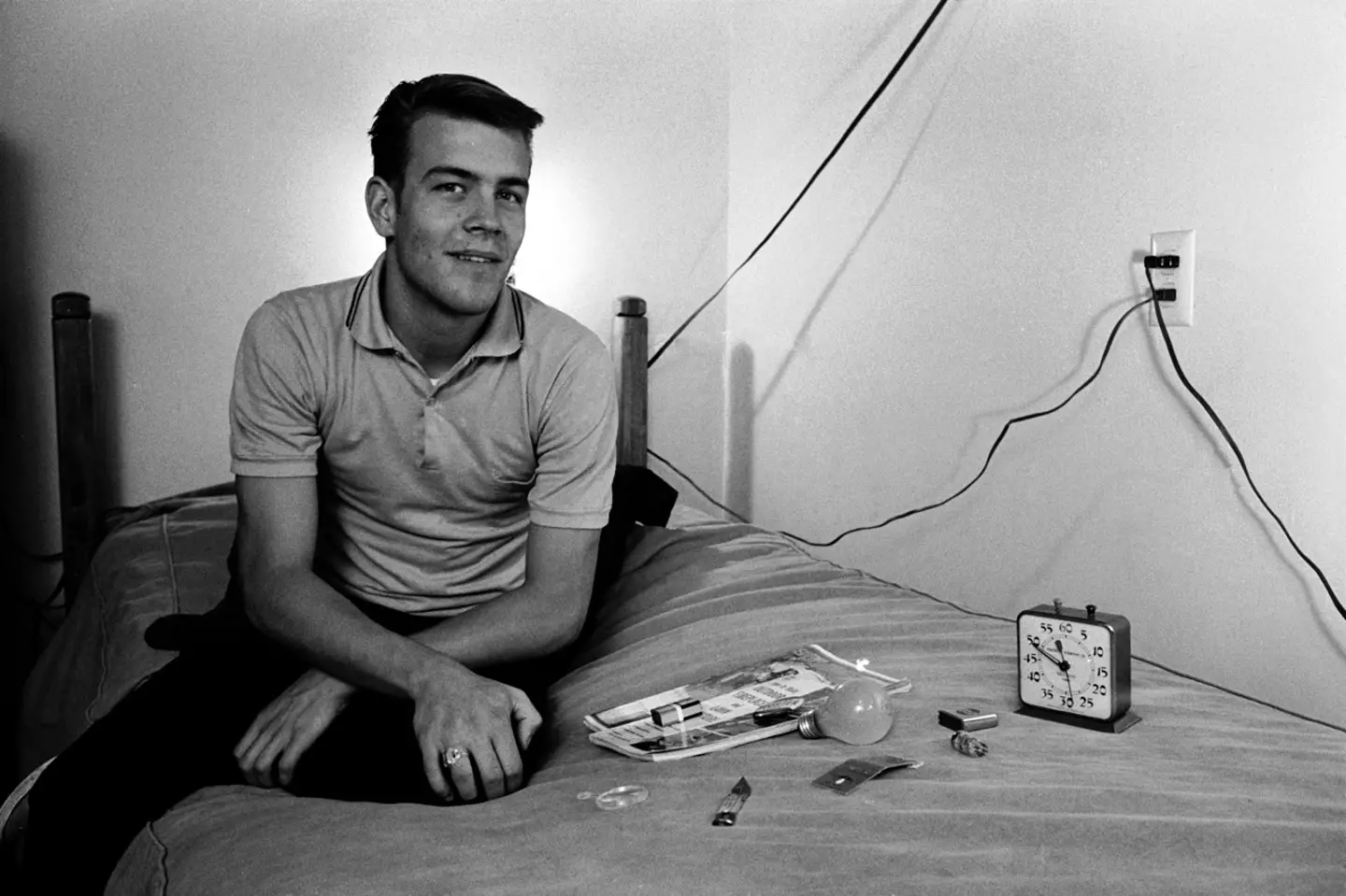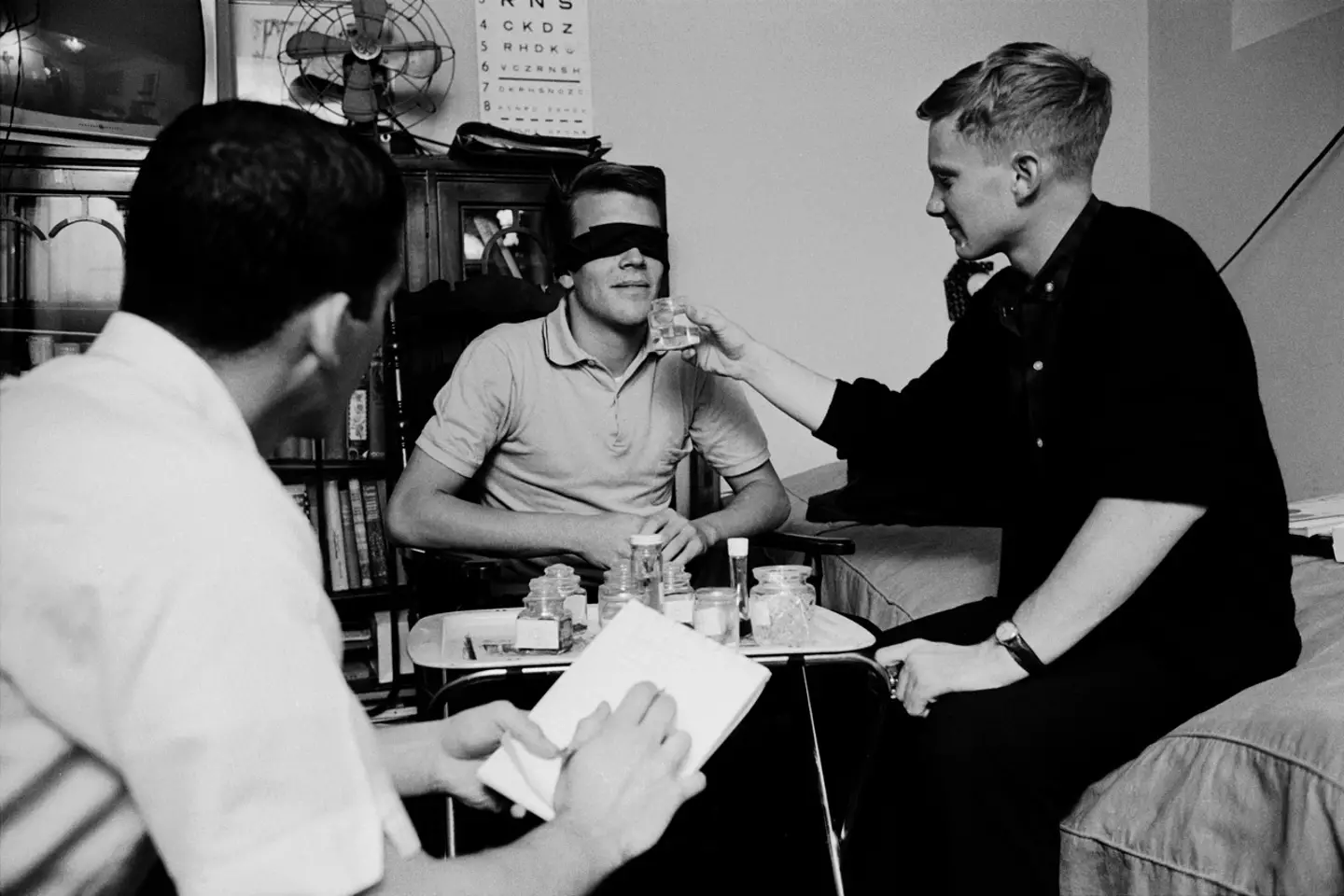Randy Gardner Didn’t Sleep for Over 11 Days.
In 1964, Randy Gardner, a 17-year-old student from San Diego, California, set out to break the world record for the longest period anyone had voluntarily gone without sleep. He and his friend Bruce McAllister took on the challenge as part of a school science fair project, with guidance from Dr. William C. Dement, a sleep researcher at Stanford University.
The two students decided to stay awake for as long as they could. It was Gardner who eventually succeeded in staying awake for an astounding 264 hours, which is 11 days and 25 minutes, breaking the previous world record.
The Beginning of the Experiment
At the start, Gardner and McAllister were just a couple of curious students, eager to take on this extreme challenge. But soon after they began, the toll of staying awake began to show. Within just two days, Gardner started to struggle with basic tasks. He had difficulty repeating tongue twisters and began to lose his concentration.

By day three without sleep, the effects were much worse. Gardner started experiencing mood swings, forgetfulness, and paranoia. His ability to think clearly was severely affected. It wasn’t long before it became clear that the challenge was taking a serious toll on his body and mind.
The Growing Impact on Body and Mind
Even though Gardner was physically fit at the start, the longer he stayed awake, the worse things got. His mental state rapidly declined. According to the researchers overseeing the experiment, Gardner began to experience hallucinations and even more extreme mood swings. He also struggled with anxiety and short-term memory loss.
The experiment continued, but Gardner’s body seemed to give up on him. While activities like playing basketball or bowling briefly helped him focus, as soon as he closed his eyes for a moment, he would instantly fall asleep. His cognitive function continued to deteriorate as the hours went by.
The Record-Breaking 264 Hours
Gardner’s effort lasted for 264.4 hours—an incredible 11 days and 25 minutes without sleep. By the time he finished the challenge, he was exhausted, physically drained, and mentally confused.
When he finally went to sleep, he rested for a full 14 hours. To his surprise, he didn’t wake up feeling groggy or disoriented. He seemed to recover faster than expected, and many thought he had made it through without lasting harm.
The Long-Term Effects of Sleep Deprivation
Despite the initial recovery, the effects of staying awake for so long continued to affect Gardner for years. In the years that followed, he started to experience insomnia and struggled to get proper sleep. He was convinced that his record-breaking challenge was to blame for his ongoing sleep issues.

Gardner later explained in an interview with NPR that his insomnia was much worse after the experiment. He said, “I was awful to be around. Everything upset me. It was like a continuation of what I did 50 years ago.” This shows just how deep the effects of sleep deprivation can go.
The Lasting Impact on Mental Health
Gardner’s struggle with sleep didn’t end after the challenge. As an adult, he continued to face issues with sleep, including anxiety and irritability. He openly admitted that it had a significant impact on his personal life and mental health. His experience made him realize just how important sleep is for overall well-being.
“You have to have sleep,” Gardner said. “It’s as important as—it’s the big three. Water, food, sleep—you’ve got to have them, all of them.”
A Lesson on the Importance of Sleep
Randy Gardner’s record-breaking feat serves as a stark reminder of just how essential sleep is to the body and mind. While it might seem impressive to push the limits of human endurance, his story shows that sleep is not something to take lightly. The long-term effects of sleep deprivation can be severe, and it’s a crucial part of maintaining overall health and happiness.
